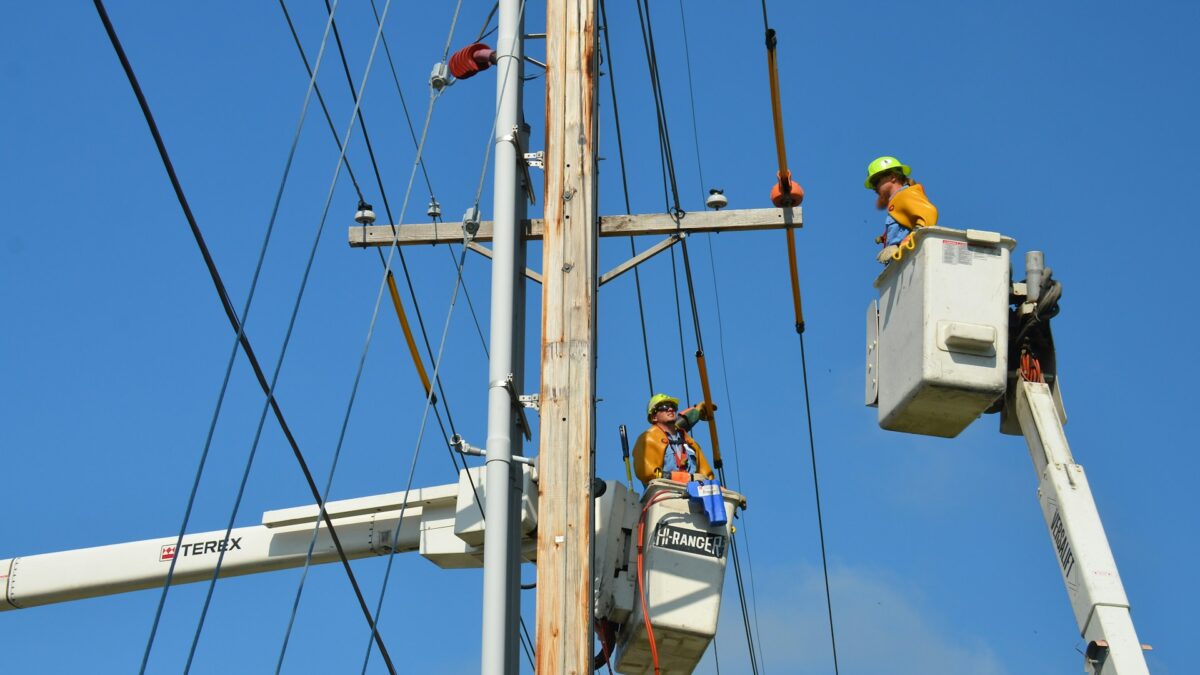
Will pro-life women join the upcoming Women’s March on Washington? That’s what Emma Green reported on Monday for The Atlantic, noting that “as many as a few hundred” women who oppose abortion could be in attendance:
Many pro-life women felt just as outraged as pro-choice women about Donald Trump’s conduct and comments, including the revelation that he once bragged about groping women without their permission. For their part, the organizers say pro-lifers will be welcome to march on January 21st. A pro-life group based in Texas, New Wave Feminists, was granted partnership status on Friday. “Intersectional feminism is the future of feminism and of this movement,” said Bob Bland, one of the event’s co-chairs. “We must not just talk about feminism as one issue, like access to reproductive care.”
I read the story with a hint of excitement and hope. I’d been thinking about going to the march. After all, I’m a woman. I’m a mother, raising a daughter. I want to stand in solidarity with other women. I thought there could be something powerful, something bipartisan and compassionate, in such a gathering.
But maybe I thought wrong.
March Organizers Distanced Pro-Life Women
After Green published her article, organizers of the Women’s March decided to remove the aforementioned pro-life group, New Wave Feminists, from their partnership page.
“The Women’s March’s platform is pro-choice and that has been our stance from day one,” the organizers said in a statement. “The anti-choice organization in question is not a partner of the Women’s March on Washington. We apologize for this error.”
The full statement is here: pic.twitter.com/HWdlDw4i2o— Emma Green (@emmaogreen) January 16, 2017
Turns out we are just going to talk about “feminism as one issue, like access to reproductive care.”
This March Could Have Given an Opportunity for Dialogue
I knew, when I thought about going to the march, that there would be a significant—if not near-unanimous—group of pro-choice folks there. But that didn’t dissuade me, because there’s a whole host of other issues we need to talk about. We need to discuss sexism, racism, domestic abuse, human trafficking, police brutality, family policy, freedom of speech, freedom of religion, and many other issues. We need to fight for the rights of the least of these: the vulnerable, the unprotected, the voiceless. We need to dialogue on controversial issues, and try our best to find understanding—even where we can’t find agreement.
As the event’s organizers themselves put it, “We practice empathy with the intent to learn about the intersecting identities of each other. We will suspend our first judgement and do our best to lead without ego.”
This is an admirable statement. I applaud it, and want to strive for it in my own life. But it begs the question: do we suspend judgment with regards to everyone but pro-life women?
This March Is Not for All Women
To pretend that being pro-life means opposing “access to reproductive care” is fallacious and wrong. Being pro-life means opposing abortion, specifically. It does not mean rejecting all forms of birth control, at all times. Many pro-life women use birth control of one sort or another—whether they believe in using natural means of birth control, the pill, condoms, or what-have-you.
But they do believe that, once a pregnancy is conceived, that unborn baby should be protected, not aborted. They just believe that “reproductive care” should not—and need not—equal “abortion.” But apparently even this stance is too much for the organizers of the Women’s March. Even that position, honest and thoughtful as it is, must be labeled as “anti-choice.”
Sadly, this seems to indicate that this march—rather than being a march for all women—is instead a march for Planned Parenthood supporters. It is co-sponsored by Planned Parenthood, alongside NARAL Pro-Choice America. But a march organized by pro-choice individuals for the express purpose of promoting Planned Parenthood’s conception of women’s rights is, unfortunately, not a “March For Women.”
Is Abortion Access Really A Matter Of ‘Justice’?
I do not want to assume the organizers were eschewing or negating the principles or stances of pro-life women. But deciding to use the term “anti-choice” rather than “pro-life” is decidedly a step in that direction. Also, the statement organizers released in response to Green’s article—saying that “The Women’s March’s platform is pro-choice and that has been our stance from day one,” and that “the anti-choice organization in question is not a partner of the Women’s March”—suggests that pro-life women, while they can attend the event, are unavoidably apart from it. They are outsiders.
Some view women’s ability to choose abortion as paramount—as synonymous with justice and freedom. As Guardian columnist Jessica Valenti put it in a tweet responding to Green’s article, “We need to stop the myth that feminism is simply ‘anything a woman does.’ Feminism is a movement for justice – abortion access is central.”
But how does one determine that abortion access is, in fact, just? By what ethical standards are we determining its justice or lack thereof? How do we answer those who see abortion as unjust, because they see the unborn as living individuals: with their own human rights, and their own potential for a beautiful, important existence?
It’s A Messy Conversation. We Shouldn’t Avoid It
It is a messy conversation. It’s a tough one. I’m not saying it’ll be easy to discuss with pro-choice folks who are adamant about their positions—because I’m pretty adamant about mine. But that’s no reason to avoid each other, or to avoid discussion.
That’s why I’ve continued to think about attending the march. Would it be worth it? Would it be a neat opportunity to meet folks and talk? Would it provide an opportunity to stand in solidarity with them on other issues?
I was also offended by Donald Trump’s statements about women. I’ve been frustrated, angered, and offended by his words. I’ve got a baby girl, who I hope will grow up in an America that applauds and defends women at every opportunity.
But I see my pro-life stance as an integral part of my feminism and womanhood. And if the statements coming from pro-choice folks in response to Green’s article are any indication, there is little room for such a position at the Women’s March on Saturday.
Pro-Life Women Deeply Believe in Defending the Voiceless
On the Women’s March website, the organizers have posted the following on their mission page:
In the spirit of democracy and honoring the champions of human rights, dignity, and justice who have come before us, we join in diversity to show our presence in numbers too great to ignore. The Women’s March on Washington will send a bold message to our new government on their first day in office, and to the world that women’s rights are human rights. We stand together, recognizing that defending the most marginalized among us is defending all of us.
I couldn’t agree more. Really. As a pro-life woman, upholding human rights and dignity is paramount in my mind. Defending the voiceless, the vulnerable, the marginalized, is priority number one. It always has been.
We Can Be More Than This
Yes, there are women attending Saturday’s march who disagree. They think that defending the unborn means taking away power and autonomy from women. But I want to have at least the chance to convince them otherwise: to share with them a different, varying perspective from all the celebrities and Planned Parenthood devotees who only see things one way.
That’s why I would ask the Women’s March organizers to change their rhetoric and their stance. This march doesn’t have to be an opportunity to stereotype and separate. This doesn’t have to be an opportunity to call “pro-life” women “anti-choice.” That doesn’t capture the spirit, the heart of what we’re about. And to use such rhetoric is to only make this event another opportunity to divide into “us versus them,” to adopt the mean-hearted exclusionism that Trump has wholeheartedly embraced.
Feminism is, as Valenti notes, a movement for justice. As such, there are many justice issues we can fight together. Wherever people believe in human dignity and worth, there is much we can agree on. That’s important. That’s worth discussing, applauding, and promoting.
We can be more than this.









